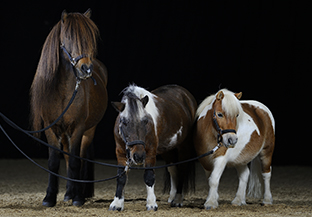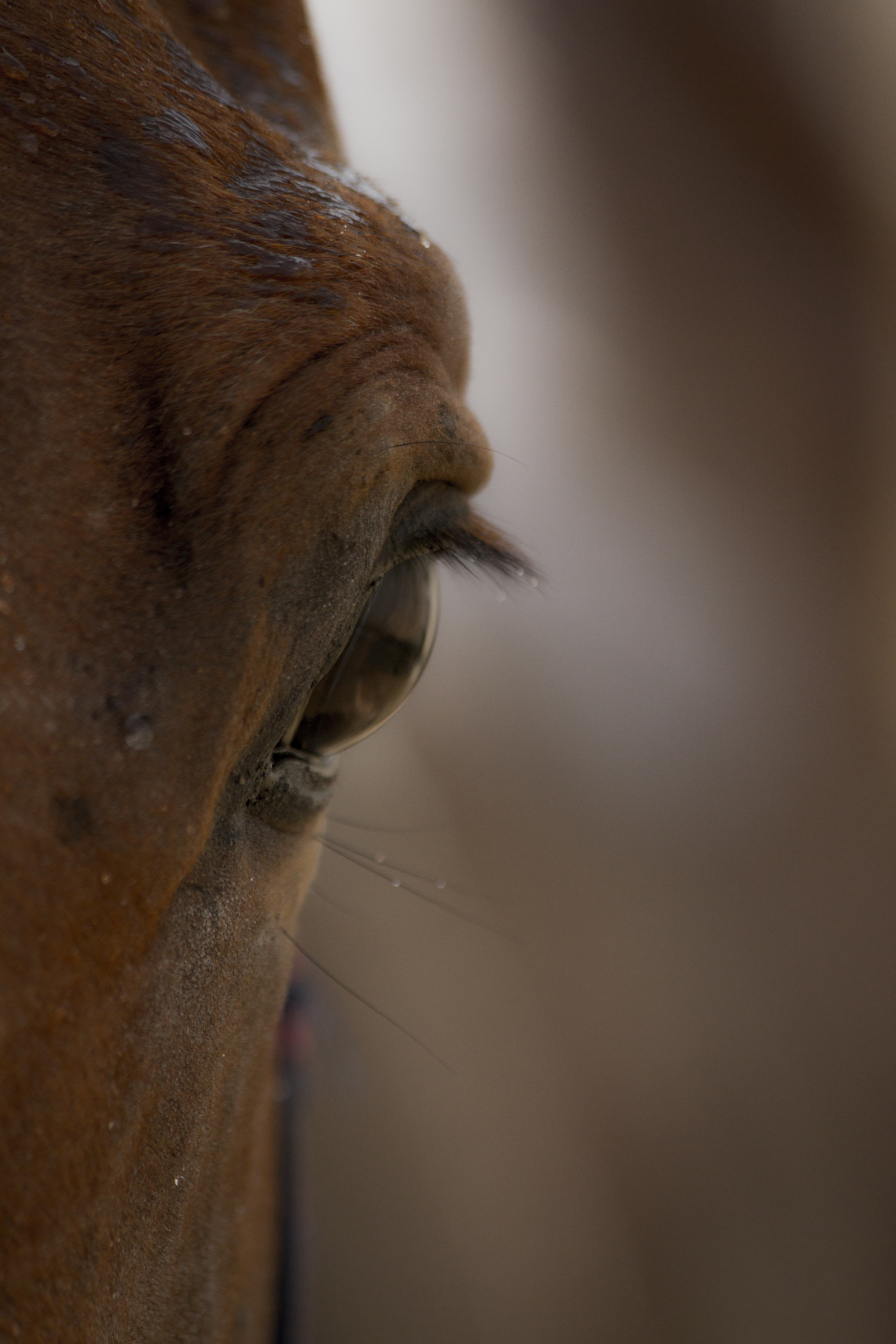No products
Welcome to the Lambey website
Select your country
Welcome to the Lambey website
Select your country
Blog Categories
Latest Posts
« Although it is illogical to try to prevent age-related physiological changes, ensuring that the horse receives the best medical care, food and hygiene can reduce the impact on its well-being. »

It is often said that old age in itself is not an illness. It is a time of life when the body has to cope with potential and progressive failures of its physiological functions, changes to the joints, tendons, teeth and nerves, which are possibly less able to repair themselves, and hormone imbalances.
The ageing process vary greatly between species, and sometimes between individuals. Biological age is a relative concept, which is estimated based on the average life expectancy of each species. In horses, the “end of career” period often occurs between the age of 15 and 20 years, when sporting activity gradually diminishes, fertility reduces, early pituitary dysfunction may occur and joint and bone damage is less well tolerated.
 |
An “old horse” usually means aged 20-30, when the majority of animals do less physical activity, most cases of hormone problems appears, a fall in anabolic and sometimes digestive function can lead to varying degrees of muscle loss, and some potentially fatal conditions such as strangulating intestinal lipoma can develop. This is also the age range when most horses die, either spontaneously or through euthanasia due to an incurable condition. A small number of horses reach the “elderly” age of over 30, when failing health is almost inevitable and the kidneys and liver also become less efficient. |
With age, horses lose the ability to develop muscles, and certain metabolic and digestive functions involved in the absorption of nutrients and protein synthesis also begin to fail. This often leads to a loss of muscle mass, which is particularly visible along the top line, hindquarters and thighs. Digestive transit may slow down, making the horse more likely to suffer from impaction colic.
The teeth growth, which usually erupt continuously and evenly from the jaw, begin to change and loss of gum can cause the molars to become loose or even fall out.
In addition, gradual deterioration due to oxidative stress in neurons at the base of the brain (hypothalamus) can cause abnormal pituitary growth in some animals. These adenomas (benign tumours) are responsible for the increased secretion of hormonal peptides which affect the body in many ways, known collectively as “Cushing’s Syndrome”, although this is an inaccurate description because the mechanisms of this disease in horses are different to those typically seen in small animals and humans. The physical signs, in addition to muscle wasting and a saggy belly, include a long wavy haircoat that fails to shed (hirsutism), supra-orbital swelling, increased water intake, a certain degree of apathy, possibly tendon laxities, and in particular, an increased risk of infections (e.g. dental and foot abscesses, sinusitis) and laminitis.
How can we help horses to “age well”?Although it is illogical to try to prevent age-related physiological changes, ensuring that the horse receives the best medical care, food and hygiene can reduce the impact on its well-being. Regular dental check-ups can prevent the overgrowth of opposing teeth if the horse has a gap in the jaw. They can also detect early signs of root infections, loosening and sinusitis. Cleaning the feet regularly and, in some cases, fitting the correct horseshoes can reduce discomfort when walking and any related behavioural issues. The horse may require a course of anti-inflammatories over a certain period, in which case it is important to monitor kidney function and consider the risk/benefit ratio of the treatment. Special attention should be paid to any symptoms suggestive of “Cushing’s Syndrome”, such as failure to shed, repeated infections even if only mild, unexplained foot sensitivity and a saggy belly, all of which should prompt a hormone test and, if necessary, appropriate treatment. The cost of the treatment and blood tests is often lesser than the cost of dealing with the numerous potential complications of a hormone imbalance. |
 |
Diet should be adjusted, taking into account the reduced ability to chew, absorb and digest the food. Vets often advise splitting meals into more frequent smaller portions and reducing the proportion of coarse fibre in favour of fodder pellets or bricks. The feed must supply enough energy to limit problems caused by the reduction in metabolic function. The horse’s fat intake can be increased by adding vegetable oil to concentrated feeds. Provided it is stored correctly, oil is also a good source of antioxidants. It also increases the assimilation of liposoluble vitamins, especially vitamin E. The horse may find it harder to access food and water, so special care must be taken in case of any competition or dominance among groups.
Adding laxatives such as flaxseed can reduce the risk of impaction colic. Finally, fruits and carrots should be avoided for horses with chewing difficulties or advanced dental problems due to the risks of oesophageal obstructions that could potentially lead to fatal choking. The general rule is to pay special attention to the animal’s well-being and any signs of discomfort, and identify the causes and possible treatment. Viewing any health problems in an "old horse” as incurable is just as foolish as trying to prolong at all costs the life of a horse in chronic pain. The best guide is probably the instinct of the person who’s taking cares of the horse day by day, subject to being able to put aside any emotional attachment.